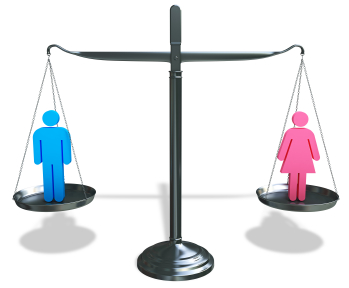
Are there times when the use of hyperbole in our writing is appropriate? Certainly, when employed to convey a compliment or express a desire, deliberate exaggeration of the facts can be effective. An example: “I will give my last dollar to the air conditioner repair person if he or she replaces the compressor before the temperature soars to 112 degrees this summer.”
 But if not employed judiciously, hyperbole can make a writer’s efforts appear amateurish or, worse, just plain ridiculous. Hyperbole can cause a writer to lose credibility with his/her readers and mire an otherwise valid argument in damning overstatement and embellishment.
But if not employed judiciously, hyperbole can make a writer’s efforts appear amateurish or, worse, just plain ridiculous. Hyperbole can cause a writer to lose credibility with his/her readers and mire an otherwise valid argument in damning overstatement and embellishment.
Last week, I argued that writers must be conscious of and avoid employing gender stereotypes in order to demonstrate regard for and earn the respect of their readers. To illustrate the point, I referenced a post I stumbled upon in which the author employed gender-specific terminology and imagery to discuss a legitimate issue, i.e., the sometimes appalling lack of civility that characterizes legal disputes. As a female lawyer, I took the writer to task for being not just insensitive, but grossly out of step with current, appropriate business practices.
Notably, I said nothing about the author’s “character” beyond expressing my dismay that the post was drafted by a practicing attorney whom I would hold to a higher standard than some other bloggers. Nonetheless, his wife stopped by to take up the cause for him, chastising me for what she deemed an “atrocious misuse of [his] character.”
Worse, because I pointed out that the language utilized in her husband’s article strongly resembled terms that frequently figure prominently in complaints of workplace sexual harassment, she resorted to hyperbole to berate me: “[His] article never directly said nor indirectly implied that women should ‘take it like a man.’ Your carte blanche implication that he is sexually harassing every woman on the planet simply by asking men to be a little more decent in their daily dealings is out of line.” [Emphasis added.]
When I discovered her comment, I found myself shaking my head in disbelief as I simultaneously thanked her for inspiring me to continue the discussion this week.
There are few things I enjoy more than a vigorous debate on any subject about which I have strong feelings or opinions. So I would have been delighted to engage in a robust discussion about both her husband’s article and my response to it.
Sadly, however, the conversation was over before it began. She committed a fatal error when she utilized hyperbole in the most ineffective manner imaginable — not to emphasize or drive home a legitimate concept, but out of anger, frustration, and to lash out in a completely unproductive manner. In short, her verbiage served not to advance the debate, but brought it to the proverbial screeching halt as a result of its sheer ludicrousness.
Gender stereotypes, like irresponsible hyperbole, diminish a writer in the eyes of his/her readers. If you want the ideas and opinions you are promoting to be given serious consideration by your readers, be sure that you express them using neither gender-hostile nor outrageously exaggerated language.
And if you’re writing in a blog about civility in business transactions or the resolution of legal disputes, don’t ever suggest that at least half of your audience — women — conduct themselves as “gentlemen” or handle those matters “like a man.” It is of no consequence that you may be the most otherwise principled, ethical, and talented member of your profession “on the planet,” because you will lose credibility with your readers as a result of your own failure to accord them the respect they deserve. [Hyperbole employed deliberately.]


1 Comment
It is not for nothing that it is said that a woman’s worst enemy is another woman. What you have experienced is nothing new.
Having said that, it is extremely difficult to be cautious about these gender matters in normal conversation.